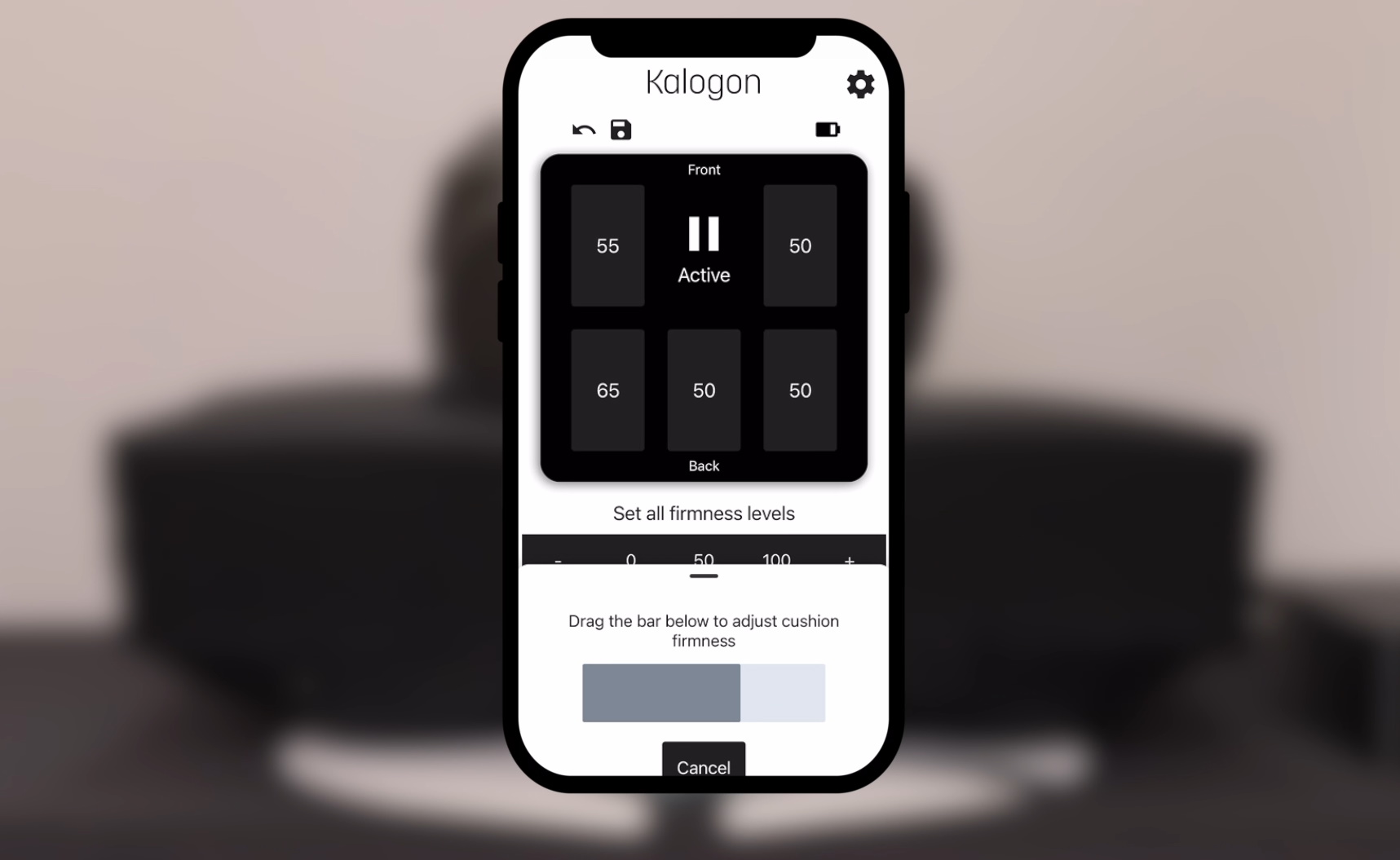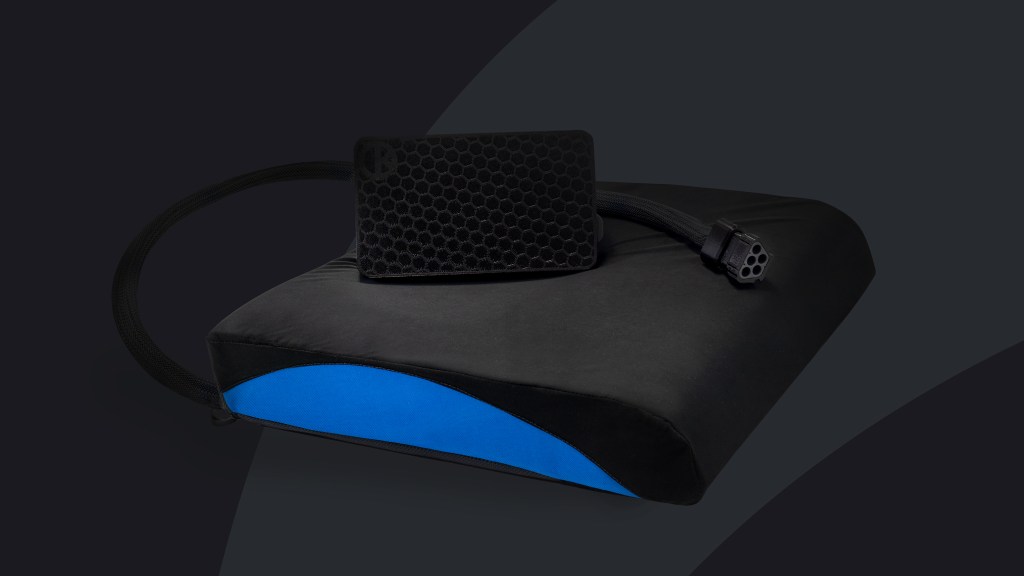Anyone who has to use a wheelchair regularly runs the risk of incurring injury from poor circulation. Kalogon believes it can mitigate this common but potentially life-threatening condition with a smart cushion that prevents any one part of the body from being compressed for too long — and it has already caught the eye of the VA.
Pressure injuries are caused when a part of the body can’t get enough blood to it and the tissue starts to die. Most people have experienced the beginnings of it, like something tightening around a finger and cutting off bloodflow, but it’s not always so external, painful or obvious.
“Especially if they have reduced sensation, just about anyone who sits for an extended period is at risk for pressure injuries,” said Kalogon founder and CEO Tim Balz.
Certainly the shift to remote work has everyone wondering whether sitting for too long is damaging their body in some way or another. But this goes well beyond a sore back; people who can’t stand up and stretch, or feel the pressure or pain that might signal a real problem, are at risk of serious harm. Pressure injuries affect millions and lead to the deaths of thousands of people every year.
The solution, in theory, is to reduce the pressure on the various parts of the body that are most affected — essentially the butt, thighs and tailbone area.
This can be done by the person if they can remember to “offload” by leaning this way for a few minutes to take the pressure off, then do it again on the other side, then forward, etc. — and do it constantly. Unsurprisingly, adherence to this kind of self-care is not particularly high.
Getting a sculpted cushion is a step up — you buy an expensive foam one, then have it shaved down or compressed to accommodate the contours of your body. But Balz pointed out that this only really works for a little while — your body changes and the cushion doesn’t, so after a month or two you need to customize it again: costly and time-consuming.
More recently there have been smart-adjacent cushions made of a pair of interwoven cushions that are filled and deflated in sequence, alternating so that pressure isn’t always on one spot. These may be better, but the problem with them is that they still allow pressure to build up in pain points because the area of pressure reduction is small. And as Balz pointed out, “the chance of injury on an IT vs a thigh is like an order of magnitude difference, so it makes no sense to treat them the same.”

Kalogon’s solution, a cushion called the Orbiter, has five distinct regions, corresponding to the tailbone and left and right thigh and butt areas generally. By keeping four of the five inflated, the user is supported adequately and a whole area is relieved of pressure. Then a few minutes later it slowly shifts that pressure to the next region, and so on.
Here’s a diagram of pressure being redistributed from the tailbone region to elsewhere (darker and green means higher pressure):
“When you sit down on it, we have a basic machine learning algorithm that at its default settings does its best to accommodate your body, but you can customize it to fit,” Balz said, either using a companion app or with the help of a caregiver or clinician. After setting its normal sequence, the cushion also monitors pressure on the different regions so it can shift differently if the user is leaning forward or to the side for longer than usual (typing, for instance, or dozing).

“By having five cells that are independently controllable, we can move one at a time and tune that movement — support the body but drop down one of the cells. If you look at a pressure map, you’ll see that the pressure drops below the commonly accepted threshold,” he continued.
The whole thing is powered by a battery and pump unit that clips to the wheelchair, and has enough power built in to last for 14-16 hours at default settings (redistributing weight every three minutes). Users have complimented the Orbiter as a huge improvement over ordinary or semi-smart cushions. One said it allowed him to sit in his chair without discomfort for four hours, which he hadn’t done in years.
You can see it being set up and demonstrated in the video below:
Despite the glowing reviews, it’s difficult to prove the efficacy of this type of setup, Balz admitted, because there’s just not a lot of clinical data on it yet. While there are generally agreed-on helpful practices like offloading pressure, there isn’t some international board of cushion testers that evaluates these things. Though the company has conducted numerous case studies with users, there’s no big study saying the cushion reduces risk by some percentage. They can, however, say that it achieves a similar effect to offloading, which everyone agrees is a good practice.
That said, the VA took a chance on Kalogon in a few cases where there was serious risk or an existing injury and Balz said they have been very happy with dozens of deployments. While the results aren’t official enough to be published, the fact that the VA is ordering more and working with them on a study using the device indicates confidence.
The cushion launched in February starting at $2,000 and is classed as a medical device that can be paid for by a variety of means, though it isn’t going to be covered by insurance or Medicare or the like just yet. That’s in the cards, Balz hopes, but for now they’re focusing on the “dozens” of VA centers that are actively recommending Orbiters. Naturally there are many veterans who could use the product, and a VA clinician endorsing it makes it more affordable.
Kalogon just raised $3.3 million in seed funding, led by SeedFundersOrlando, with participation from DeepWork Capital, VenVelo, and Sawmill Angels. It also collected federal grant money from the U.S. Air Force (make of that what you will). The funding will go toward scaling the company and, of course, meeting demand.































Comment